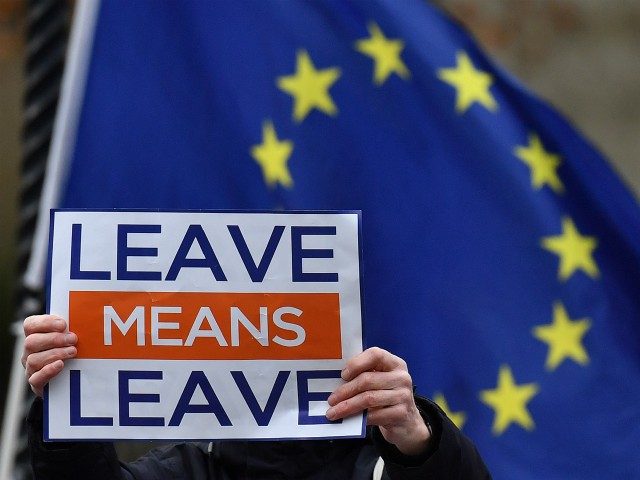Brussels bureaucrats have rejected suggestions that the withdrawal agreement with the UK can be renegotiated, while the European Union ramps up preparation for a clean Brexit.
Prime Minister Theresa May is due to meet with European leaders and EU officials Tuesday to seek “further reassurances” over the controversial Irish backstop after she postponed the House of Commons vote on the withdrawal agreement in face of certain defeat.
In response of a prospective push for fresh talks over the agreement, European Commission President Jean-Claude Juncker has said that “there is no room whatsoever for renegotiation” and that the European Union would continue to prioritise stopping customs border checks between British Northern Ireland and the EU’s Republic of Ireland, according to The Times.
“The big problem is the backstop. We have the common determination to do everything to not be in the situation one day to use it. But we have to prepare. It is necessary for the entire coherence of what we have agreed and for Ireland. Ireland will never be left alone,” Juncker said.
A Commission spokesman later added, “We have an agreement on the table. This deal is the best and only deal possible. We will not renegotiate. Our position has therefore not changed and as far as we’re concerned the UK is leaving the EU on March 29 2019.”
Member of the European Parliament and the bloc’s Brexit coordinator Guy Verhofstadt also mocked May on Monday after she announced the vote would be cancelled, saying he “just can’t follow anymore” and that the EU would “never let the Irish down.”
“The vote is delayed. Mrs May is coming back to Brussels,” he added.
“We have two messages for her. The first is whatever the request may be we will never let down our Irish friends. It is out of question to renegotiate the backstop on Ireland.”
The Irish backstop proposals are highly unpopular with Brexiteers and Northern Irish unionists over the prospect of the agreement forcing the province into continued regulatory alignment with the EU should a deal not be struck between the bloc and the United Kingdom to allegedly prevent a so-called ‘hard border’ with the Republic of Ireland — but effectively create a border between mainland Britain and Northern Ireland.
Brexit spokesman for Northern Ireland’s Democratic Unionist Party (DUP) MP Sammy Wilson, who said last month that his party would not allow the EU to finish what the IRA started by cutting the province off from Britain, stated that any assurances May could obtain from Brussels over the backstop “don’t mean anything when they are put against a legally binding international agreement.”
Westminster DUP leader Nigel Dodds echoed Mr Wilson’s sentiments, writing in The Telegraph on Tuesday, “No reassurance will prevent, as the Attorney General said, Great Britain being ‘essentially treated as a third country by Northern Ireland for goods passing from GB into NI.’”
Both the Republic of Ireland’s Taoiseach (prime minister) Leo Varadkar and European Council president Donald Tusk have said they are preparing for a ‘no deal’ Brexit, according to the Irish Times.
Mr Varadkar and Mr Tusk spoke Monday after May’s announcement, with the Irish government’s spokesman confirming that while they believed the agreement to be the preferred deal for the bloc, they “agreed that preparations for a ‘no-deal’ outcome should intensify.”
French officials have also confirmed that they are ramping up preparations for a no deal, signalling EU leaders are of the mind that even after a delay in voting and in light of Brussels’ intransigence on the backstop, UK MPs will vote down the agreement.
France’s minister for Europe Nathalie Loiseau said,“This latest development must not make us lose sight of the fact that it is more and more likely that [the Commons] will reject the withdrawal agreement.”
The prime minister is also set to tell Wednesday’s Cabinet meeting, originally scheduled for Tuesday, that ministers should prepare for a clean exit in March 2019, free from the bloc’s regulations and without the near-two year transition period.

COMMENTS
Please let us know if you're having issues with commenting.